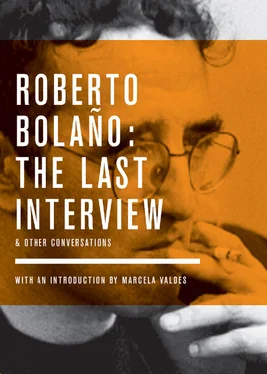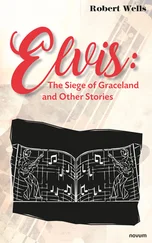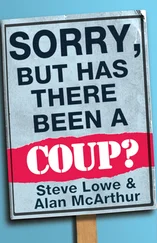EA:Do you agree with those who say that a child leaving the house is life’s happiest and most dramatic moment?
RB:I don’t agree with that. If it were up to me, I’d live to 100 and always protect my child. I don’t think reason has anything to do with parent-children relationships, not at all. Perhaps from the perspective of a child, reason does impose itself, but from the perspective of a parent, it’s very difficult to impose reason. One acts viscerally, in accordance with accumulation of fear and anguish. For example, when I was not yet a father, it was very difficult to injure me. I thought that I had finally acquired a type of invulnerability. But that all changed the moment my older child was born; that is to say, all of the fears and terrors I experienced as an adolescent re-emerged and duplicated, multiplied themselves by 100. See, I can put up with them myself, but I do not want my child to have to go through them. It’s frightening, and now I have a daughter besides. I won’t say anymore. I’ll start to cry. The only explanation I could give would be to start to cry. It’s beyond the beyond.
EA:Your family left for Mexico when you were fifteen-years old. Why?
RB:Basically, my mother had been to Mexico a couple of times and was familiar with the country and she convinced my father. My mother has always been an anxious person. She convinced my father that the best thing to do was to leave Chile and to go to Mexico. My parents were always separating and getting back together. Their relationship was stormy throughout my childhood and in a way Mexico was a small paradise, a place where they could start over. It was fun for them at first, although no fun at all for me. On the first day of school in Mexico, some guy challenged me to a fight just because I happened to be Chilean; we hadn’t said a word to each other. He was a Mexican kid who didn’t know how to fight very well and was short besides. I was certain that with two punches I could knock him to the ground, but I realized that if I knocked him down all the others would come after me and that’s when I got smart: I grasped the situation in the act, and I directed the fight to a tie. I came off very well and he made good friends with me and no one ever wanted to fight me again. It was like a baptism in Aztec thought, quite disagreeable, but I realized where the shots were heading and the underlying message of the fight.
EA:Mexico was as dynamic as Chile was on its way to being when you arrived.
RB:Mexico was of a different dynamism. Look, in that era, Mexico City had 14 million inhabitants and it was a separate planet, it was the city where everything was possible. For me, because I came from a small town in Chile, a southern town besides, I exchanged a small town for a metropolis. I was never a resident of Santiago; I was born in Santiago, but I never lived in Santiago. I knew Santiago only from visiting.
EA:What were the strongest differences? The ones that cost you the most to get used to.
RB:Very few. Mexicans are really very hospitable. Since I was only fifteen-years old, I quickly Mexicanized myself. I felt totally Mexican. I never felt like a stranger in Mexico, except for that first day in school. There wasn’t anything I had trouble getting used to.
EA:How did you arrive at Trotskyism?
RB:Just by being a contrarian I think. I did not like the priestly, clerical unanimity of the Communists. I’ve always been a leftist and I wasn’t going to turn right just because I didn’t like the Communist clergymen, so I became a Trotskyite. The problem is, once among the Trotskyites, I didn’t like their clerical unanimity either, so I ended up being an anarchist. I was the only anarchist I knew and thank God, because otherwise I would have stopped being an anarchist. Unanimity pisses me off immensely. Whenever I realize that the whole world agrees on something, whenever I see that the whole world is cursing something in chorus, something rises to the surface of my skin that makes me reject it. They’re probably infantile traumas. I don’t see it as something that makes me proud.
EA:That’s curious, because from what you’re saying, unanimity is what was missing from your home.
RB:There was never any unanimity in my home. Not ever.
EA:How did you see the experiment with the socialism of the Chilean way?
RB:When I returned to Chile, shortly before the coup, I believed in armed resistance, I believed in permanent revolution. I believed it existed then. I came back ready to fight in Chile and to continue fighting in Peru, in Bolivia.
EA:Allende must have seemed like a conservative grandpa to you guys.
RB:To us, in those years, Allende was a conservative. What happened is that his figure, in what concerns me, has changed vastly over time. I remember September 11, 1973: in one moment, I’m waiting to receive weapons to go and fight and I hear Allende say, in his speech no less, “Go forward knowing that, sooner rather than later, the great avenues will open again and free men will walk through them to construct a better society.” In that moment, it seemed terrible to me, almost like a betrayal committed by Allende against those of us young people who were willing to fight for him. With time, that’s one of the things that has ennobled Allende: saving us from death, accepting death for himself but saving us from it. I think that has made him huge in an immense way.
EA:But they detained you.
RB:I was detained, but a month and a half later in the south. The other thing happened in Santiago.
EA:And friends from school helped you escape.
RB:Friends from high school. I was detained for eight days, although a little while ago in Italy, I was asked, “What happened to you? Can you tell us a little about your half a year in prison?” That’s due to a misunderstanding in a German book where they had me in prison for half a year. At first they sentenced me to less time. It’s the typical Latin American tango. In the first book edited for me in Germany, they give me one month in prison; in the second book — seeing that the first one hadn’t sold so well — they raise it to three months; in the third book I’m up to four months; in the fourth book it’s five. The way it’s going, I should still be a prisoner now.
EA:Did you have doubts about being able to make a living as a writer?
RB:I had many doubts. In fact I worked at other things. Economic doubts for many years, always economic; never vocational. What interested me, at twenty years old, more than writing poetry, because I also wrote poetry (in reality, I only wrote poetry), what I wanted was to live like a poet, even though today I wouldn’t be able to specify what it meant to me to live like a poet. Anyway my basic interest was to live like a poet. For me, being a poet meant being revolutionary and completely open to all cultural manifestations, all sexual expressions, in the end, being open to every experience with drugs. Tolerance meant — much more than tolerance, a word we didn’t much like — universal brotherhood, something totally utopian.
EA:Doesn’t prose make that sensibility more profound?
RB:Prose has always demanded more work. We were against work. Among other things, we were tirelessly lazy. There wasn’t a single person who could make us work. I worked only when I didn’t have any other choice. Also, we accepted living life with very little. We were complete Spartans, with meager means, but at the same time we were Athenians and sodomites enjoying all aspects of life, poor but luxurious. This was all related to the hippies, the North American model, May of ’68 in Europe, to many things in the end.
Читать дальше












